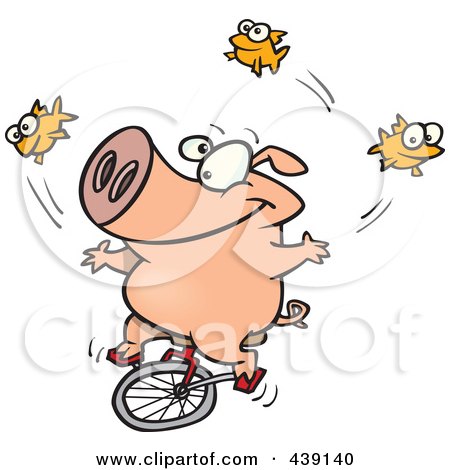Sensory Issues in Autism
An important thing to remember for
people with autism of all ages is sensory stimulation issues. It is well known
in the autism community that people with autism can easily be over stimulated
by certain things. After that, things get a bit fuzzy. I have heard it said that
autistic people can be over or under simulated by certain types of stimuli. From
my own experience, autistics tend to need a small amount of sensory stimulation
of the right type (sensory seeking) and shielding from stimulation of the wrong
type (sensory overload) or overwhelming amounts of stimulation of any type. To
make things more confusing, what kind of sensory stimulation is bad and what is
good can be different for each autistic person.
Sensory Overload
Sensory overload can be especially
disabling for people with autism. The symptoms of sensory overload vary from
person to person. Some of the common effects range from confusion, anxiety,
irritability, shakiness, and restlessness to more serious effects like panic attacks,
physical pain, physical illness, migraine headaches, aggression, paralysis,
meltdowns, and breakdowns.
Sensory Seeking
Sensory seeking is being drawn to or calmed by certain forms of stimuli. People with autism
are well known for "stimming." The most well-known forms of this are
repetitive motions or sounds that are used to reassure or entertain themselves.
Stimming probably has the worst reputation of all the autistic behaviors
because it sets autistic people apart as being "weird, abnormal, or
unnatural." This can lead to stimming issues to be treated all out of
proportion of their importance, or even worse being treated with fear and
revulsion. Yet for people with autism, sensory stimulation can be needed in
order for them to be able to function effectively. Therefore, the goal should
not be to eliminate sensory stimulation behavior, but to channel it into more
appropriate and productive activities.
Finding a balance
Being able
to balance sensory issues is critical for any autistic person to be able to
function in a "normal" environment. In order to do this, you need to
identify what the sensory stimulation issues are for any given autistic person.
This is especially difficult on caregivers of nonverbal autistics or autistic
children that are too young to talk and analyze their own situation. In this
case, the only way to figure this out is by observation. Let me give some examples
with each sense of both sensory seeking and over-stimulation and some
possible tools that can be used in either case. It is worth mentioning that a
person can be sensory seeking and sensory overloaded by the same form of
stimuli at different levels.
Hearing
If an autistic person makes noise,
hums, echolalia, repeats things, babbles or screams every time it gets quiet,
it may be that they need sound stimulation. Some low background music without
words, like classical or ambient, could make a great deal of difference.
Another idea is fans or other sources of “white noise” to keep things from
being “too quiet” and to mask disturbing sounds. The idea here is for the sound to be truly background. If it
is too interesting or intrusive, it defeats the purpose.
On the other hand, if the person gets upset
every time there is a noise (especially sudden ones), this could mean they are
being overwhelmed by sound. A pair of headphones that completely cover the ears
could be an amazing help to them. I really want to test the effectiveness of a
pair of noise canceling headphones with access to both music and a parabolic
microphone for controlling audio stimulation.
Beware that some things that appear
to be sound-based, might actually be touch or even deep pressure. Loud sounds
and especially low tones can often be felt as vibrations. Making noises through
banging or drumming can be as much about how it feels as how it sounds.
Sight
If an autistic person likes to hide
in dark places, or seems reluctant to go out into the sunlight or other bright
places, or they shy away from flashing lights or bright colors they may have
light sensitivity. A pair of sunglasses, even indoors, can be a real help.
Another idea is dimmable lights or indirect lighting. Personally, visual
overstimulation is the fastest way to give me a migraine headache.
If they are drawn to the light and
things that are brightly colored, they made need more visual stimulation. Another
possible indication is if they get stuck, like a deer in the headlights, by
visually interesting things like TVs or moving patterns. Bright colors or
shimmering, iridescent or spinning things could be very comforting to them. Using
videos and educational TV programs might be especially effective in getting
things across to them. It is always been especially difficult for me to ignore
TV's. Whenever a TV is on, it catches my attention and I am forced to watch it
even if the content is uninteresting, distressing, or repulsive.
Touch
If an autistic person is constantly
rubbing or scratching themselves they may need more tactile stimulation. Even
more disturbing signs of the need of tactile stimulation are so-called self
injurious behaviors like hitting themselves or head-banging. A sensory stimulation
brush such as occupational therapist use could be very helpful. I used to love
corduroy pants, embroidered patches, or those old-fashioned 3-D books that had
the plastic ridges on them that I could run my fingers over. The idea here is
something that is tactilely interesting that they can handle in public and
still be considered appropriate. Swimming can be also very useful as it helps
to be able to feel as the water goes over the entire surface of the skin.
On the other hand, it is not uncommon to be
overwhelmed by things like clothing touching the autistic person’s skin.
Warning signs here are things like constantly taking off their clothes, wearing
their clothes inside out or rejecting rough blankets or towels. In this case
removing clothing tags and making sure the inside lining of the clothing is
smooth and not scratchy can be very important. Autistic people who are
sensitive to touch often say that light touches leaves an itching sensation
that may last long after the touch is over. My son still likes to wear his
clothing inside out as often as he get away with it.
Another thing to watch out for here is
sensitive skin. If they are constantly scratching at her skin until it's red
and raw, they may be sensitive to things like the chemicals in fabric softeners
or the scents in laundry soaps. I have sensitive skin and it leaves me itching
nearly constantly and I have to be constantly aware of whether or not it's
appropriate to scratch in public.
Smell
Smell can also be the big sensory
trigger. If they are constantly burying their nose in things, they may be
smelling them. In this case scented candles or Glade plugs might be useful. I have also seen small dolls that scented powders put into their stuffing. Conversely, they may be overwhelmed by smell. If they avoid the kitchen or
rooms that have just been cleaned or any other strong smells, scents may be
overwhelming to them. In this case, Frabreze becomes your friend. Sensitivities
to smell can often result in an autistic person getting violently ill in the presence
of a noxious smell.
Taste
The last of the primary senses is
taste. Taste is a tricky one because eating is such a sensory rich activity. Eating
involves smell, touch, heat, cold, visual appearance, and deep pressure as well
as taste. Teasing what is taste and what is other sensory issues can be a bit
difficult. To make things even more complex, taste is divided into five
sensations: sweet, bitter, sour, salty, and meaty (or umami). People with autism are notoriously picky
eaters. They are often so repelled by certain foods that trying to get them to
eat them is like telling them to drink poison. Other times they may get so
fixated on a certain food that they don’t want to eat anything else. My son
would not eat anything brightly colored for many years. Personally, I can’t eat
potato salad because I can’t stand texture of the smooth potatoes with crunchy
bits in them. I also love sweet and salty tastes and can hardly stand bitter or
sour tastes and can barely taste meaty tastes at all. Just to make things more
fun, neither my son nor I can stand hot spices because the burning sensation is
completely overwhelming to us.
Other senses
Beyond the five primary senses,
there are other senses that autistic people can be drawn to or are oversensitive
to.
Balance and Motion
The sense of balance and motion is
one I've seen many autistic people to be drawn to. They tend to love to run,
dance, or spin and never get tired of it. Rocking
chairs come in all sizes and can be very comforting. On the other hand people who are
sensitive to motion may get easily carsick and find things like roller coasters
at theme parks to be torturous. I remember that when I was a small boy, I used
to spin until I got so dizzy that I fell down, over and over, and it never made
me feel ill.
Deep Pressure
Another obscure sense is deep
pressure. Those who are drawn to deep pressure tend to love hugs and massages
in infinite amounts, while those who are sensitive to it can hardly stand more
than a light touch. This particular overstimulation can lead to a major
misunderstanding about an autistic person “rejecting affection,” when in
actuality they just can't stand the sensation of deep pressure. There are
therapies involving wearing weighted jackets and ankle and wrist weights to
help with deep pressure stimulation.
Warmth and Cool
The sensations of warmth and cool
are also senses. When I was young I could not get enough of warmth. I was
forever wearing coats on warm days, never wore shorts even 100º+ weather and
could not get enough of long hot showers. It drove my poor mother crazy. As for
cool, being drawn to a cool breeze, cool water or even an obsession with
popsicles might be indications. Just a couple of notes here, warmth and burning
are completely different sensations, as are cool freezing: I love the sensation
of warmth but hated the burning sensation. Also, just because you love warmth
does not mean you'll hate cool and vice versa.
There might be other senses that
autistic people are drawn to, but these are all I'm aware of. I would also like
to remind you that these are simply examples of personal experience and other
people I've seen or read about. There are plenty of other ways in which autistic
people show they are drawn to or overwhelmed by sensations.
Combined Sensations
Besides this, they can also be
drawn to or overwhelmed by different combinations of sensations. I mentioned
that I was drawn to certain rough textures, but this was especially true when I
could use them to make a sound that I could hear and could also feel the
vibrations as deep pressure. For someone trying to unravel this from outside
observation they can be very complex and confusing.
Change Over Time
One last thing to note is that
sensory issues can and do change over time and the methods of coping certainly
change with growth. An autistic child of four may be overwhelmed by touch to
the point of never wanting to wear clothes and spend much of their time
spinning. The same person at fourteen may have difficulty with eating any food
they consider slimy, but loves to run whenever they find room. At the age of
twenty-four, the same person may love to wear light, flowing clothing and have
become a professional dancer. Some sensory issues disappear over time while
others become problematic seemingly out of nowhere.
In any case, sensory issues tend to
be a big deal for people with autism throughout their lives. Understanding
sensory issues can be key to understanding how to help an autistic person to
improve grow and thrive in their environment.












10 comments:
You missed one sense that often causes huge problems and that I have rarely seen mentioned in terms of sensory issues. More often it seems to be tied to focus/concentration, laziness, effort, motivation. But it is a sensory thing, just as much as the 5 basic senses you mentioned.
Time. One's sense of passing time as well as the sense of future and past time. A sensory issue for many autistics that I have read about and yet is so often missed, or misunderstood. If a person has no sense of time passing, or their sense of time is too distorted to be relied on, that obviously makes things such as school, chores, work, etc very difficult. But it does not mean they have issues with concentration or motivation, it could be purely sensory.
There is of course proprioception as well, sensing the location of one's body without having to see or feel it, another very common sensory issue. But that one at least seems to be recognized as a sensory issue, unlike the time sense.
I KNEW that there were more senses out there, I just couldn't remember them. My first draft of this article forgot taste!
I know well the problems with being unable to sense the passage of time appropriately. I have to use alarms and schedules to keep track of time, as well as keeping me organized. This particular problem has ruined so many of my meals, that it is not to be believed.
Proprioception is another great one. You really would not believe how often I walk into doorways and hit the edges of walls. This is so commonplace with me as I often find bruises I have no idea how I got.
Anyway, thank you for your reply. This is a great contribution to the discussion.
John Mark McDonald
No i think I know why I have never liked swimming or waterballoons, to much water at once ( I even don't like taking a bath, so ile just take a shower, wet enough. same goes for sauna.
Hi there, thank you for your article. I wonder if you could offer me some advice? I'm in my early 20's and have recently been diagnosed with Asperger's Syndrome - finally. Because of my ability to conceal things for so long I have never had any help for sensory issues. My diagnosis has made me very stressed recently and of late this has shown in my sensory issues being far worse than normal. I believe it's called hypersensitivity. The last week has been unbearable with clothes. I prefer firm touch (though it is still uncomfortable) to light touch which actually makes me feel like I've been briefly plugged into the mains. So, I have tried tight clothes, loose clothes, labels off, inside out. Everything hurts and it feels as though I should have massive lacerations all over me. It is mostly affection hands feet arms and the big one is my torso. There the biggest problem seems to be anywhere the fabric touches on my vertebrae and shoulder blades. I just don't know what to do. I know reducing anxiety will help long term but I need something faster than that at the moment! Thanks!
Hi Milo,
This is a big one. When sensory sensitivities get to the point of pain, there is a tendency to dismiss them as not "real" pain. The pain IS real! It should be treated like any other pain of the same intensity. Over the counter medications should be tried first to see how effective they are. If they don't work, talk to your doctor about getting something stronger. You may choose to not to mention the source of the pain with your doctor if you are not comfortable that they will take you seriously.
Another thing I would suggest is make sure you are getting the proper rest. This can make a HUGE difference in both pain and anxiety levels. Those of us on the spectrum often have sleep issues anyway. Melatonin has worked for me in getting myself on a reasonable sleep cycle for the first time in decades.
Don't forget to ask other autistics out there for their advice as well.
John Mark McDonald
Oh wow I didn't realise that I could actually take pain killers for this? I thought that because NTs don't experience it then it's not real pain but more perceived and so they won't prescribe. But now you think of it, if you're perceiving it and experiencing it as pain then surely it is pain. Thanks for that, fortunately I have some stronger stuff from a sports injury so I'll try that. Sleep is patchy at the moment, and the less sleep I get the less I cope with the pain. I think the only hours I am sleeping at the moment are purely because my body is physically incapable of staying awake any longer! Thank you for your help.
Good sharing, Special Children Society of Ampang (SCSOA) is a centre that cares for children with special needs to equip them with the skills necessary to be a part of society, recently Ronald McDonald House Charities (RMHC) Malaysia funded a sensory room, it is a safe space for children who are intellectually and developmentally challenged and comes furnished with multi-sensory equipment from the UK, see detail at:
http://kidbuxblog.com/ronald-mcdonald-sensory-room-heightens-the-senses-of-the-developmentally-challenged/
Something to note about the hugging thing, I think for some people it might be more psychological, possibly an adrenaline thing, since I'm good with hugging certain people I know well, but not other people I do not know well or are not as close to (I have aspergers syndrome). It might just be because I have some sort of anxiety disorder though. Also, this is something not entirely relevant, but I think the thing with not being able to make eye contact with people may also be an adrenaline thing, since I can notice that I sometimes have a flight or fight reaction to eye contact with a stranger (I once even felt a shock in my lower torso in reaction to it). I've also noticed that while making eye contact with strangers kinda builds up anxiety, making eye contact with people I know well/am close to can make me feel good. This is kind of similar to what happens in dogs (just throwing that out there for any darwinists)
Ari, that one truly applies to me. I see time very abstract, and I am terrible at keeping track of time. What you said does too.
Scintor, that happens to me. That applies. With a very high pain tolerance, pain is different.
The shower thing, too. I haven't swam in a while, which is very soothing, but taking a shower is a different story.
I have classic autism. Too little organization, or too much can be a problem.
Bally's Las Vegas Casino - JT Hub
Bally's Las Vegas Casino. 3475 Las Vegas Blvd S Las Vegas, 밀양 출장안마 NV 89109. Phone: 동해 출장안마 (702) 770-7711. Website: www.ballyslv.com. Website: www.ballyslv.com. Website: www.ballyslv.com. Location: 제천 출장샵 The Las 서산 출장마사지 Vegas Strip, The 김제 출장안마 Strip.
Post a Comment